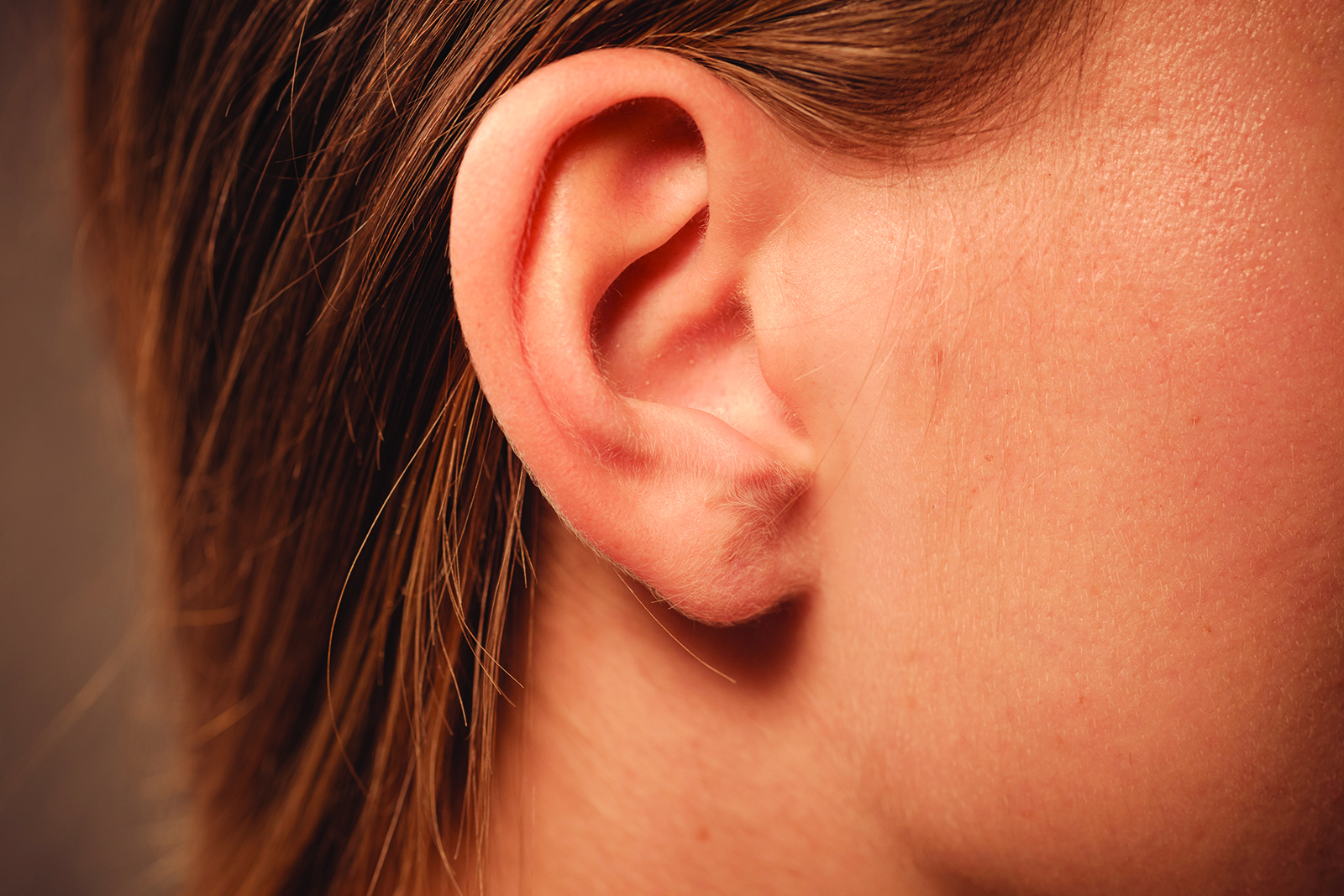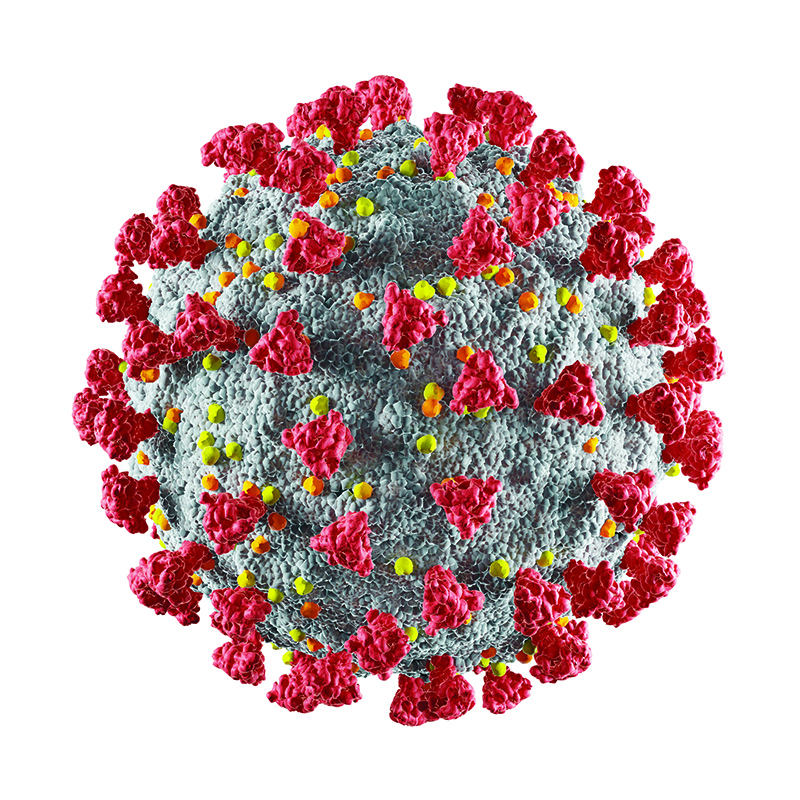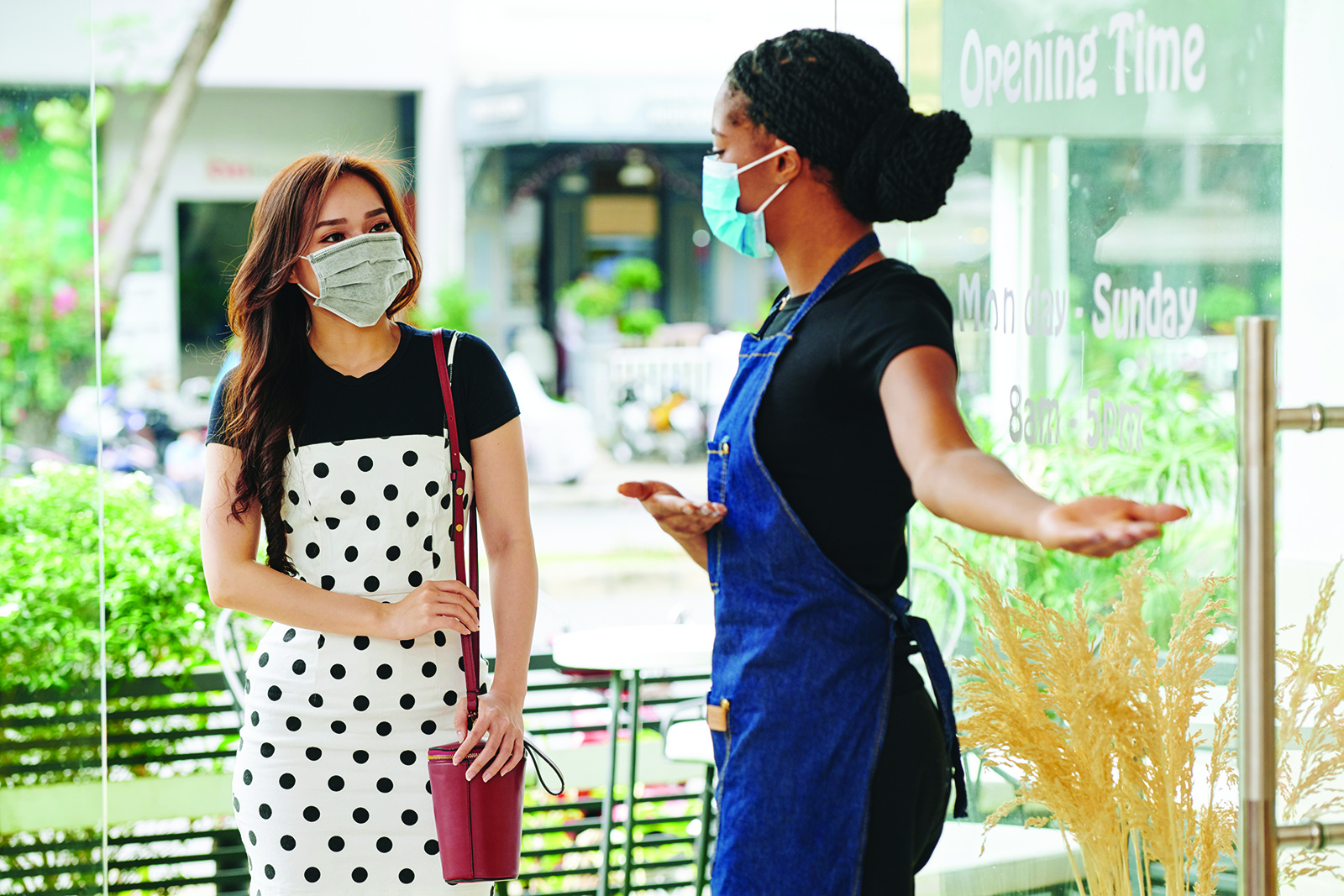Our knowledge about this strain of coronavirus seems to be increasing exponentially each week with information about how a person's body is affected while the virus is active and after the person has recovered. Dr. Megan Johnson, audiologist and owner of Johnson Audiology, said, "Evidence continues to emerge showing the wide-ranging effects COVID-19 can have on the body's organs and systems, and it is looking like our ears and sense of hearing may also take a hit from this monster of a virus." Preliminary research is beginning to suggest that COVID-19 may have lasting negative impacts on neural and auditory pathways, which in turn can lead to hearing loss.
So what does this have to do with self-care? Dr. Johnson said, "It is estimated that 48 million Americans have significant hearing loss with 22 million Americans exposed to dangerous levels of sound in the workplace. That's a little more than 14% of the total population who can't hear all of the sounds they once heard." In addition, Americans wait an average of seven years before addressing hearing loss. Dr. Johnson continued, "That's seven years of a gradually decreasing quality of life, increased risk of harm and hospital stays because of falls since balance is linked to inner ear health, frustration, loneliness. Plus, without the stimulus of sound, your brain 'forgets' how to hear, making it even harder to adjust to hearing aids when someone finally addresses hearing loss." These statistics make it clear that when it comes to self-care, many people minimize hearing and hearing loss. Johnson Audiology's Dr. Susan Porter observed, "Interestingly, the pandemic has shone a light on many people's hearing loss, making it impossible to ignore. As we all don face masks to stay safe and compliant, those with hearing loss are forced to confront how much they were lip reading. Now that people's mouths are covered, the person with hearing loss is really struggling." So, in the midst of a global pandemic attributed to a virus that is showing no signs of slowing down, it becomes even more important to stay vigilant about addressing your physical self-care, including your hearing.
Preliminary research is starting to be published. For example, in a recent study conducted at South Valley University in Egypt1, a group of patients who were asymptomatic and tested positive for COVID-19 were monitored for two weeks. They ranged in age from 20-50 and presented no known symptoms of the virus, nor did they have any known hearing loss prior to testing positive. This age group was chosen specifically to avoid those with age-related hearing loss. After the two weeks of testing, it was found that the hair cells inside the ear's cochlea (the seashell-shaped structure that is part of the inner ear and allows us to hear) showed signs of damage, and response to high frequency sounds was significantly reduced. While this test group had no symptoms of the virus, it is important to note that there is still much to learn about the underlying effects of the virus being present in the body, even among those who are asymptomatic.In another case, a patient in Hannover, Germany was admitted to the hospital with symptoms of COVID-192. The patient was in the Intensive Care Unit for 13 days during his battle against the virus. Prior to contracting COVID-19, the patient was in good health and had no known hearing loss. After his treatment in the ICU, the patient presented as completely deaf on his right side and with profound hearing loss on his left side. MRI's showed the patient had suffered from inflammation in and around the cochlea. This inflammation can lead to the cochlea becoming solidified like bone, no longer flexible and functioning.
Additionally, in most cases of the treatment of symptoms and the effects of COVID-19, the drugs commonly used in fighting the virus can be toxic to the ear and/or the nerves connected to the ear. Doses of certain drugs are known to cause hearing loss and create complications throughout the ear and the functions that the ear provides. It is these drugs, however, that are necessary to treat the symptoms of many known viruses, like COVID-19, as well as various bacterial infections.
Many unknowns exist with the presence of a new virus or disease, and it can take years to fully understand its origins and its lasting effects. In a time of so much uncertainty, but also so much emphasis on self-care, why not address your hearing loss now? Audiologist Darnell Scafe, with Johnson Audiology, suggested asking these questions: "Are there certain sounds that you have noticed you can't quite hear as well as you used to? Do you find yourself frustrated in crowded situations because you are always asking people to repeat what was said? Are you struggling in public settings because people are wearing face masks, and you can no longer read their lips? She encouraged, "As the landscape of self-care and health care are ever-changing, why not change your approach to caring for your ears?"Many things can affect our ears and contribute to hearing loss. They range from exposure to loud sounds, to side effects of drugs, or the emergence of a new strain of virus into our environment. And while many types of hearing loss are irreversible, technology continues to advance in ways that make hearing loss something that can be treated and hearing health improved. Dr. Johnson cautioned, "Don't wait. Address your hearing loss at first onset so that you can enjoy years of sounds, conversations and being an active participant in your own life. Contact Johnson Audiology and begin a partnership with our team of audiologists that will put you on the path to healthy hearing."
For research citations noted above, visit www.johnsonaudiology.com/covid19hearing.


